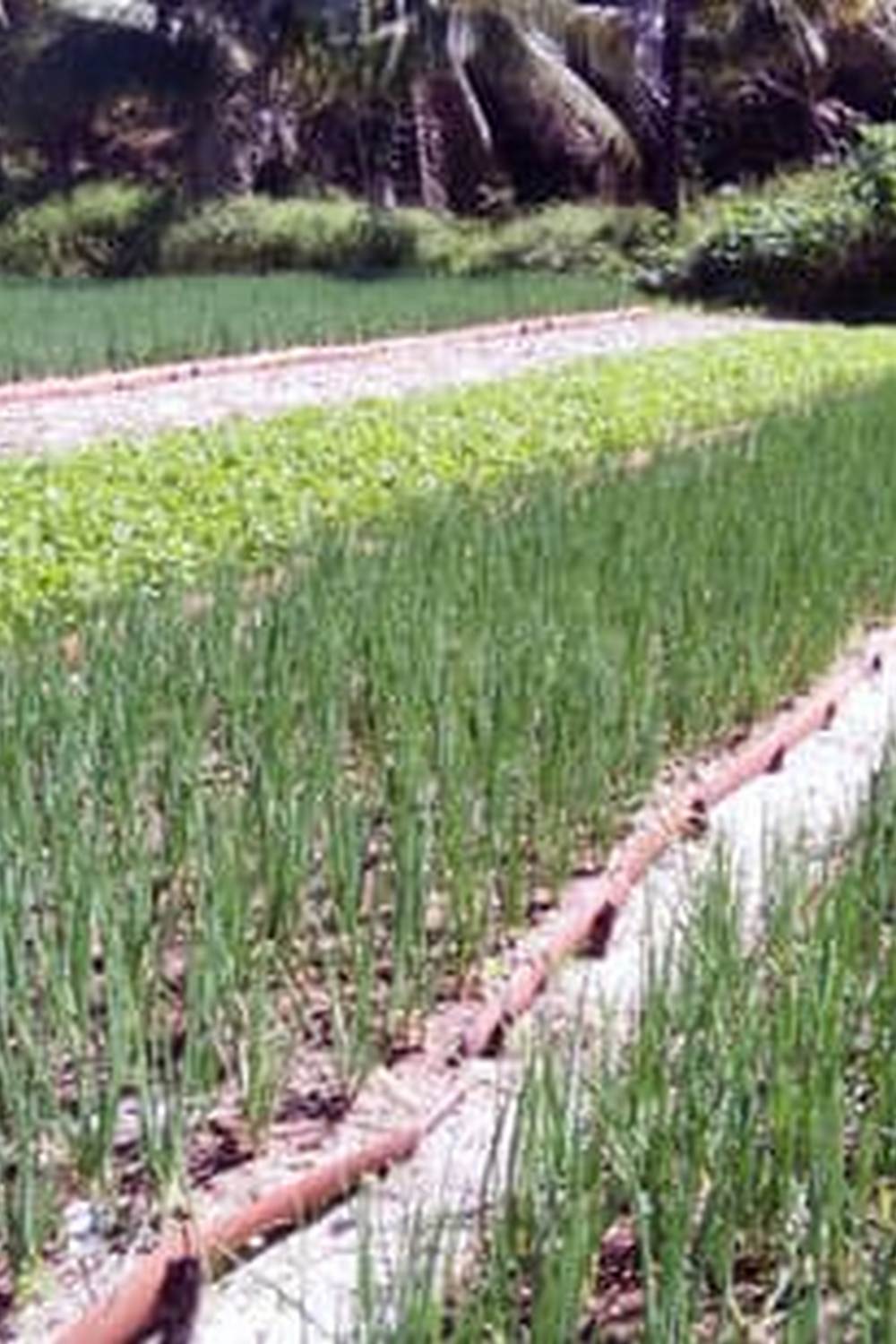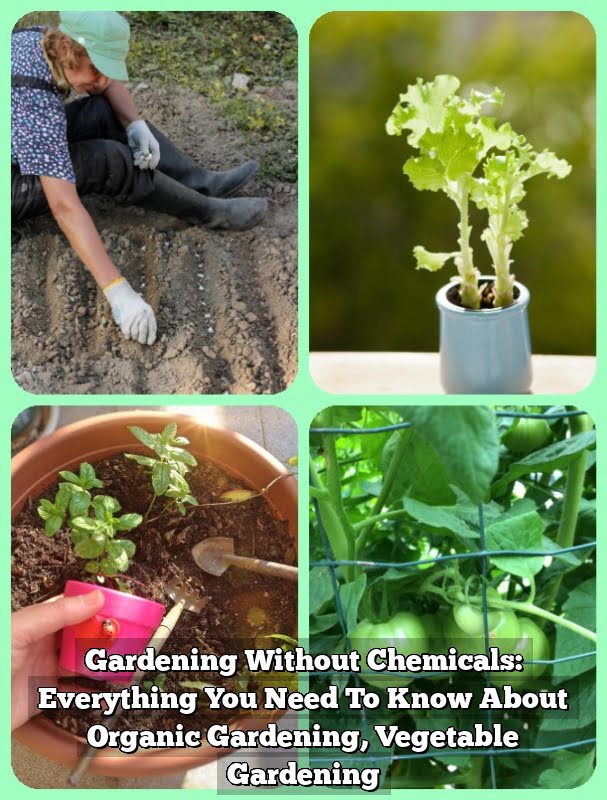Are you looking to cultivate a thriving garden without the use of harmful chemicals? If so, chemical-free vegetable gardening might be just what you need. In this article, we will explore the benefits and methods of chemical-free vegetable gardening, providing you with a comprehensive guide to creating a healthy and sustainable garden.
Chemical-free vegetable gardening involves growing fruits and vegetables without the use of synthetic fertilizers, herbicides, and pesticides. This approach focuses on nurturing the soil and plants using natural methods, ultimately producing food that is free from harmful residues. Whether you are a seasoned gardener or just starting out, embracing chemical-free vegetable gardening can lead to numerous rewards for you and your family.
In the following sections, we will delve into the various aspects of chemical-free vegetable gardening, including organic soil preparation, selecting the right seeds and seedlings, natural pest control methods, companion planting techniques, maintaining soil health without chemicals, as well as harvesting and enjoying your produce. By adopting these practices, you can create a flourishing garden that is not only environmentally friendly but also provides nutritious and delicious home-grown food for your table.
Benefits of Chemical-Free Vegetable Gardening
Chemical-free vegetable gardening offers numerous benefits to both the environment and the health of individuals. By choosing to go chemical-free, gardeners can contribute to a healthier ecosystem while also providing themselves with nutritious, untainted produce.
Environmental Benefits
Chemical-free vegetable gardening helps to preserve the natural balance of the ecosystem. Chemical pesticides and fertilizers can disrupt this delicate balance by harming beneficial insects and microorganisms in the soil. By opting for natural pest control methods and organic soil preparation, gardeners can create a garden that supports a thriving community of organisms, contributing to a healthier environment overall.
Health Benefits
Consuming vegetables grown using chemical-free methods means avoiding potentially harmful residues from synthetic pesticides and fertilizers. This can lead to a reduced risk of ingesting toxins that are associated with certain health issues. Additionally, growing your own organic produce gives you peace of mind knowing exactly what has gone into cultivating your vegetables.
Financial Benefits
While there may be some initial investment in transitioning to chemical-free vegetable gardening, over time it can lead to cost savings. By utilizing natural pest control methods and maintaining soil health without chemicals, gardeners reduce their reliance on expensive commercial products. Additionally, growing your own vegetables at home means saving money on grocery bills while enjoying better quality produce.
Getting Started
Organic soil preparation is a crucial step in chemical-free vegetable gardening. By using natural methods to enrich and nurture the soil, you can lay the foundation for a healthy and productive garden. This section will provide you with some key tips and techniques to get started with organic soil preparation.
Composting for Nutrient-Rich Soil
One of the best ways to prepare your soil organically is by creating and using compost. Composting involves collecting kitchen scraps, yard waste, and other organic materials, and allowing them to decompose into nutrient-rich soil amendment. By adding compost to your garden beds, you can improve soil structure, enhance moisture retention, and provide essential nutrients to your plants without the use of synthetic fertilizers.
Cover Cropping for Soil Health
Another effective method for organic soil preparation is cover cropping. Planting cover crops such as clover, vetch, or ryegrass during the off-season can help prevent erosion, suppress weed growth, and improve soil fertility. As these cover crops grow, they contribute organic matter to the soil when they are eventually turned under or mulched.
Avoiding Chemical Contamination
When preparing your organic garden’s soil, it’s essential to ensure that you avoid chemical contamination. This means using only certified organic amendments and avoiding any synthetic fertilizers or pesticides that can compromise the chemical-free integrity of your garden. Additionally, be mindful of any potential sources of chemical contamination in your water supply or surrounding environment.
By following these organic soil preparation practices, you can create a healthy growing environment for your vegetables without relying on chemical-based products. This sets the stage for a bountiful harvest of nutritious produce while promoting environmental sustainability through chemical-free vegetable gardening.
Choosing the Right Seeds and Seedlings
When it comes to chemical-free vegetable gardening, choosing the right seeds and seedlings is crucial for a successful and healthy garden. By opting for organic, non-GMO seeds and seedlings, you can ensure that your plants are free from synthetic chemicals and have not been genetically modified. This is an important step in maintaining a truly chemical-free garden.
Organic seeds and seedlings offer several benefits for your vegetable garden. Firstly, they are often more resilient and better adapted to natural growing conditions, leading to stronger, healthier plants. Additionally, by choosing organic seeds and seedlings, you are supporting sustainable agricultural practices that promote biodiversity and environmental conservation.
When selecting seeds and seedlings for your chemical-free vegetable garden, look for reputable sources that specialize in organic varieties. Many nurseries and online retailers offer a wide selection of organic seeds and seedlings, making it easier than ever to find the perfect options for your garden. From heirloom tomatoes to heritage carrots, there is a wealth of organic options available to suit every gardener’s preferences.
In addition to choosing organic seeds and seedlings, consider saving your own seeds from successful crops in your chemical-free vegetable garden. By doing so, you can create a self-sustaining cycle of natural plant propagation that reduces the need for external inputs while preserving the genetic diversity of your garden. Ultimately, making mindful choices when selecting seeds and seedlings is a foundational step in achieving a truly chemical-free vegetable gardening experience.
Natural Pest Control Methods
Chemical-free vegetable gardening prioritizes the use of natural pest control methods to manage and prevent pests from damaging crops. By incorporating these methods, gardeners can protect their vegetables without using harmful chemicals that can be detrimental to the environment and human health. Some effective natural pest control techniques include companion planting, attracting beneficial insects, and implementing physical barriers.
Companion planting involves strategically placing certain plants next to each other to deter pests or attract insects that prey on harmful ones. For example, interplanting onions with carrots can help repel carrot flies, while growing marigolds near tomatoes can discourage nematodes. Additionally, attracting beneficial insects like ladybugs and lacewings can help maintain a balanced ecosystem in the garden, as they feed on destructive pests such as aphids and caterpillars.
Incorporating physical barriers such as row covers or netting can also provide protection against pests like birds and insects. These barriers act as a shield for vulnerable plants while allowing air, water, and sunlight to reach them. By utilizing these natural pest control methods, chemical-free vegetable gardeners can effectively manage pest issues while promoting a healthy and sustainable gardening environment.
| Natural Pest Control Method | Description |
|---|---|
| Companion Planting | Strategically planting certain species together to repel pests or attract beneficial insects |
| Attracting Beneficial Insects | Encouraging the presence of predator insects that feed on common garden pests |
| Physical Barriers | Using row covers or netting to protect plants from birds and insects without using chemicals |
Companion Planting for a Healthy Garden
Companion planting is a key aspect of chemical-free vegetable gardening. This gardening method involves planting different types of plants in close proximity to promote growth, enhance flavors, and control pests naturally.
One example of companion planting is the “Three Sisters” method used by Native Americans, which involves planting corn, beans, and squash together in the same plot. The corn provides a structure for the beans to climb, the beans add nitrogen to the soil, and the squash acts as ground cover to suppress weeds.
Not only does companion planting promote a healthier garden ecosystem, but it also helps reduce the need for harmful chemicals. For instance, certain plant combinations can repel pests or attract beneficial insects that prey on common garden pests. For example, planting basil near tomatoes can help ward off tomato hornworms, while marigolds can deter nematodes when planted near other vegetables.
In addition to pest control benefits, companion planting can also improve soil health by promoting biodiversity and preventing nutrient depletion. By diversifying plant species in your garden and practicing chemical-free vegetable gardening methods like companion planting, you can create a more resilient and balanced ecosystem while yielding healthy and abundant harvests.
| Companion Planting Example | Benefit |
|---|---|
| “Three Sisters” method: corn, beans, squash | Promotes mutual growth and pest control |
| Basil near tomatoes | Repels tomato hornworms |
| Marigolds near vegetables | ´Deters nematodes |
Maintaining Soil Health Without Chemicals
When it comes to chemical-free vegetable gardening, maintaining the health of the soil is crucial. Chemical fertilizers can deplete the soil of essential nutrients and beneficial microorganisms. By implementing natural methods, you can ensure that your soil remains fertile and productive for years to come.
Here are some ways to maintain soil health without chemicals:
- Composting: Creating a compost pile or bin is a fantastic way to recycle kitchen scraps and yard waste into nutrient-rich soil amendment. Compost adds valuable organic matter to the soil, improving its structure and enhancing its ability to retain moisture.
- Mulching: Using organic mulch such as straw, leaves, or grass clippings helps regulate soil temperature, reduce water evaporation, control weeds, and improve overall soil quality as it breaks down over time.
- Crop Rotation: Rotating crops from season to season can help prevent disease build-up in the soil and minimize pest infestations. It also helps maintain the balance of nutrients in the soil by alternating the types of plants grown in each area.
By implementing these practices and focusing on building healthy, nutrient-rich soil through natural means, you can enjoy a thriving garden without the need for synthetic chemicals. This not only benefits your immediate surroundings but also contributes positively towards a healthier environment as a whole.
Harvesting and Enjoying Your Chemical-Free Produce
When it comes to chemical-free vegetable gardening, the satisfaction of harvesting and enjoying your own produce is unparalleled. Not only are you enjoying fresh, flavorful vegetables, but you also have the peace of mind knowing that they are free from harmful chemicals and pesticides. Whether you are a seasoned gardener or just starting out, here are some tips for harvesting and savoring the fruits of your labor:
- Harvest at the Right Time: Different vegetables have different optimal harvest times. Make sure to research and learn about when each of your vegetables is ready to be harvested. This will ensure the best flavor and texture.
- Proper Storage: Once harvested, it’s important to store your produce properly to maintain freshness. Some vegetables can be stored in the refrigerator, while others may need to be kept in a cool, dark place. Understanding the storage needs of each vegetable will help prolong their shelf life.
- Cooking and Preserving: There are countless ways to enjoy your freshly harvested produce. From simple salads to hearty soups, the possibilities are endless. You can also explore preserving methods such as canning or freezing to enjoy your homegrown vegetables throughout the year.
In addition to being able to enjoy delicious, chemical-free produce, harvesting your own vegetables can also bring a sense of accomplishment and pride. Knowing that you have nurtured and cared for your plants without relying on harmful chemicals adds an extra layer of satisfaction to every meal enjoyed with homegrown ingredients.
Ultimately, chemical-free vegetable gardening goes beyond just growing food – it’s a lifestyle that promotes sustainability, biodiversity, and overall well-being. Embracing this approach allows you to experience the joys of cultivating a healthy garden while reaping the rewards at every meal.
Conclusion
In conclusion, embracing chemical-free vegetable gardening offers a multitude of benefits for both the environment and personal health. By avoiding the use of harmful chemicals, gardeners can help protect the soil, water, and air from pollution. This method also ensures that the produce grown is safe for consumption without any traces of potentially harmful substances. Furthermore, chemical-free vegetable gardening promotes biodiversity by providing a natural habitat for beneficial insects and wildlife.
When getting started with chemical-free vegetable gardening, it is important to focus on organic soil preparation and choosing the right seeds and seedlings. By maintaining soil health without chemicals and utilizing natural pest control methods such as companion planting, gardeners can create a healthy and thriving garden ecosystem. Not only does this benefit the immediate environment, but it also allows for the production of high-quality, nutrient-dense produce.
Incorporating chemical-free vegetable gardening into your lifestyle not only provides an opportunity to enjoy fresh and flavorful produce but also contributes to long-term environmental sustainability. As more people embrace this approach to gardening, there is greater potential for reducing our reliance on harmful synthetic chemicals in agriculture. Ultimately, chemical-free vegetable gardening empowers individuals to take control of their food sources and cultivate a healthier and more sustainable future for generations to come.
Frequently Asked Questions
Is It Possible to Grow Vegetables Without Pesticides?
Yes, it is possible to grow vegetables without pesticides. This can be achieved through organic farming methods, such as crop rotation, using natural predators to control pests, and maintaining healthy soil.
How Can I Grow Crops Without Chemicals?
Growing crops without chemicals can be done through various sustainable farming practices. This includes using organic fertilizers, such as compost and manure, employing natural pest control methods, and practicing crop diversity to maintain soil health.
How Do You Grow Vegetables Without Fertilizer?
Growing vegetables without fertilizer can be accomplished by focusing on building and maintaining healthy soil. This can be achieved through techniques such as composting, utilizing cover crops, and rotating crops to naturally replenish nutrients in the soil.

If you’re looking to get into vegetable gardening, or are just looking for some tips on how to make your current garden better, then you’ve come to the right place! My name is Ethel and I have been gardening for years. In this blog, I’m going to share with you some of my best tips on how to create a successful vegetable garden.





